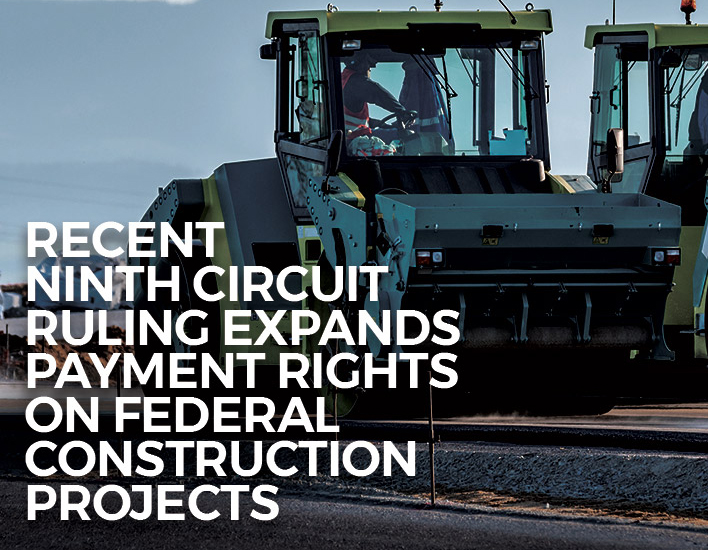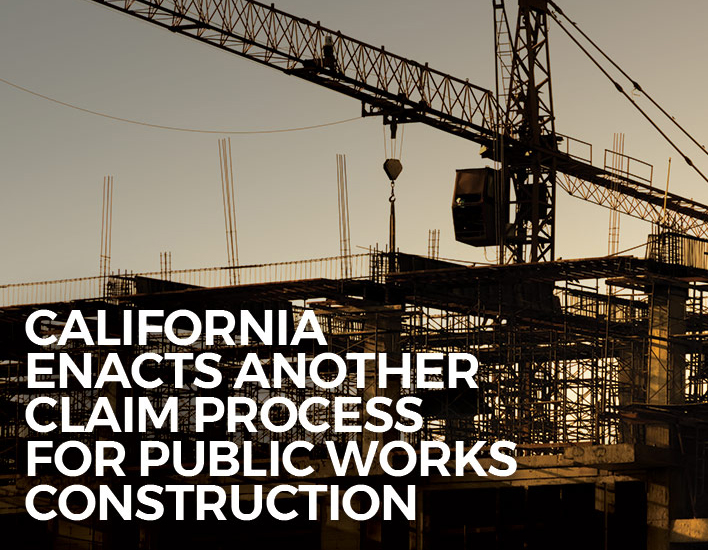By: Chad T. Wishchuk, Esq. of Finch, Thornton & Baird, LLP.
On October 14, 2017, Governor Edmund G. Brown Jr. signed into law Assembly Bill 1701 (“AB 1701”) — a law that is very likely to increase the costs of private work construction throughout the state as a result of the additional burden placed on those with a direct contract with the project owner.
Under AB 1701, enacted as Labor Code section 218.7, general contractors are liable for “any debt owed to a wage claimant or third party on the wage claimant’s behalf, incurred by a subcontractor at any tier acting under, by, or for the direct contractor for the wage claimant’s performance of labor included in the subject of the contract between the direct contractor and owner.” (Labor Code, § 218.7, subd. (a).) The law applies to “direct contractors,” defined broadly as “a contractor that has a direct contractual relationship with an owner.” So, a general contractor on any private construction project will be liable for the unpaid wages (including fringe benefits and other benefit payments or contributions plus interest) of every worker on or connected to the project.
AB 1701 gives the Labor Commissioner the right to bring an administrative action or civil lawsuit against general contractors. (Labor Code, § 218.7, subd. (b).) Unions owed fringe benefits, and joint labor management cooperation committees, may also bring an action under this new law. Prevailing plaintiffs are entitled to recover attorneys’ fees and costs, but prevailing contractors are not. A lawsuit or action can be brought within one year of project completion — at least nine months longer than a mechanic’s lien claim under law already existing and providing a remedy for unpaid wages.
AB 1701 includes no specific safe harbor for diligent general contractors, but it does authorize general contractors to demand payroll records from subcontractors and to withhold payments if “disputed,” i.e., if the subcontractors do not provide evidence of payment of all wages, taxes, and fringes due to labor. (Labor Code, § 218.7, subd. (f).)
Best practices to prepare for this new law include:
- Ensuring strong indemnity language in all subcontracts including supply contracts;
- Requiring subcontractors at every tier to be bonded;
- Obtaining personal guarantees by principals of subcontractors;
- Monitoring subcontractors and suppliers, including demanding payroll records and proof of payment prior to issuing payments; and
- Withholding subcontract payments pending receipt of proof of payment of wage earners and their fringe benefits.
The law goes into effect on January 1, 2018, and applies to all private contracts entered into after that date.
To ensure you are complying with the prevailing wage requirements of AB 1701, please contact Chad T. Wishchuk, Esq. of Finch, Thornton & Baird, LLP at (858) 737-3100.
For a PDF of this article, click here.
DISCLAIMER: This new law advisory is a publication of Finch, Thornton & Baird, LLP, for the purpose of providing information relating to recent legal developments. It is not intended, nor should it be used, as a substitute for specific legal advice, and it does not create an attorney-client relationship.


